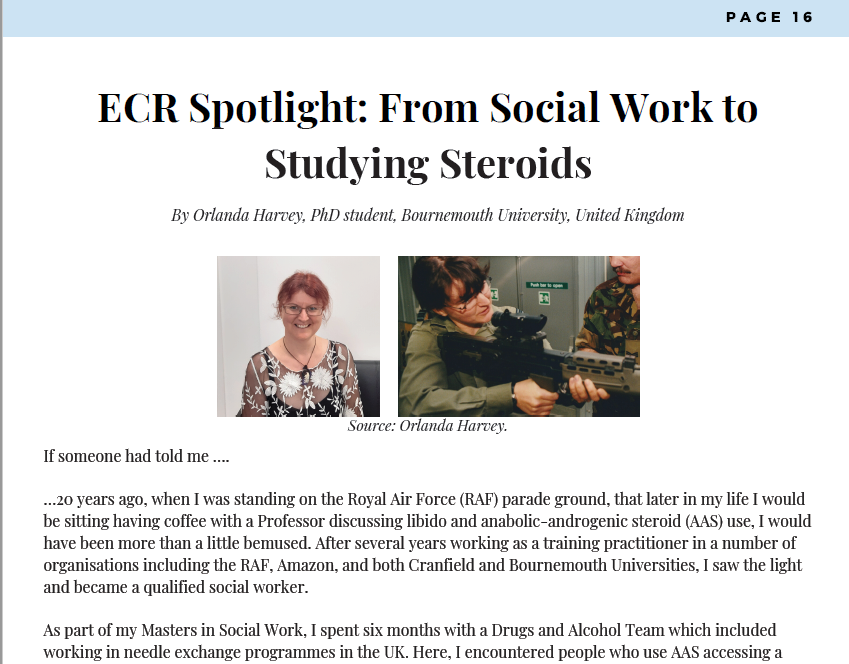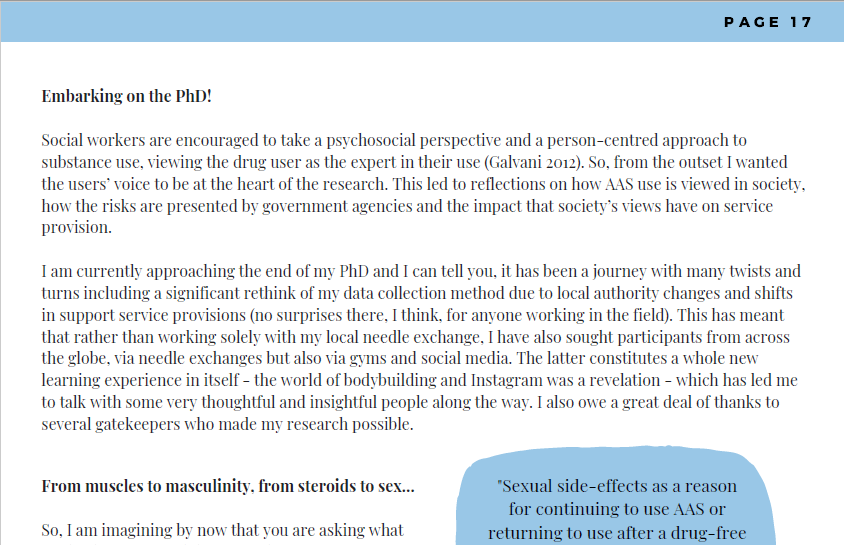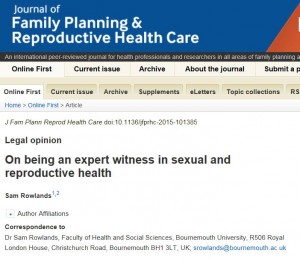
PhD student Orlanda Harvey featured in this month’s edition of HED Matters as Early Career Researcher (ECR) with an article on ‘ECR Spotlight: From Social Work to Studying Steroids’ [1]. HED Matters is an online magazine about the use of legal and illegal substances to enhance the human condition published biannually by the HED network. It brings together recent advances in drug research and experiences from both drug users and practitioners. This December 2019 issue focuses on sexual human enhancers. Orlanda’s PhD research project addresses men’s experiences of recreational Anabolic Androgenic Steroid (AAS) use.
 Earlier this year she also published a peer-reviewed paper form her research : “Support for people who use Anabolic Androgenic Steroids: A Systematic Scoping Review into what they want and what they access” in the Open Access journal BMC Public Health [2]. Since there is a paucity of research on support for people using Anabolic Androgenic Steroids (AAS), this latter article synthesised the available evidence. Orlanda’s PhD I the Faculty of Health & Social Sciences is being supervised by Dr Margarete Parrish, Dr Steven Trenoweth and Prof Edwin van Teijlingen.
Earlier this year she also published a peer-reviewed paper form her research : “Support for people who use Anabolic Androgenic Steroids: A Systematic Scoping Review into what they want and what they access” in the Open Access journal BMC Public Health [2]. Since there is a paucity of research on support for people using Anabolic Androgenic Steroids (AAS), this latter article synthesised the available evidence. Orlanda’s PhD I the Faculty of Health & Social Sciences is being supervised by Dr Margarete Parrish, Dr Steven Trenoweth and Prof Edwin van Teijlingen.
References:
- Harvey, O., (2019) ECR Spotlight: From Social Work to Studying Steroids, HED Matters 2(2):16-19.
- Harvey, O., Keen, S., Parrish, M., van Teijlingen, E. (2019) Support for people who use Anabolic Androgenic Steroids: A Systematic Literature Review into what they want and what they access. BMC Public Health 19: 1024 https://rdcu.be/bMFon

















 Exploring Embodied Research: Body Map Storytelling Workshop & Research Seminar
Exploring Embodied Research: Body Map Storytelling Workshop & Research Seminar Marking a Milestone: The Swash Channel Wreck Book Launch
Marking a Milestone: The Swash Channel Wreck Book Launch No access to BRIAN 5-6th February
No access to BRIAN 5-6th February ECR Funding Open Call: Research Culture & Community Grant – Apply now
ECR Funding Open Call: Research Culture & Community Grant – Apply now MSCA Postdoctoral Fellowships 2025 Call
MSCA Postdoctoral Fellowships 2025 Call ERC Advanced Grant 2025 Webinar
ERC Advanced Grant 2025 Webinar Update on UKRO services
Update on UKRO services European research project exploring use of ‘virtual twins’ to better manage metabolic associated fatty liver disease
European research project exploring use of ‘virtual twins’ to better manage metabolic associated fatty liver disease